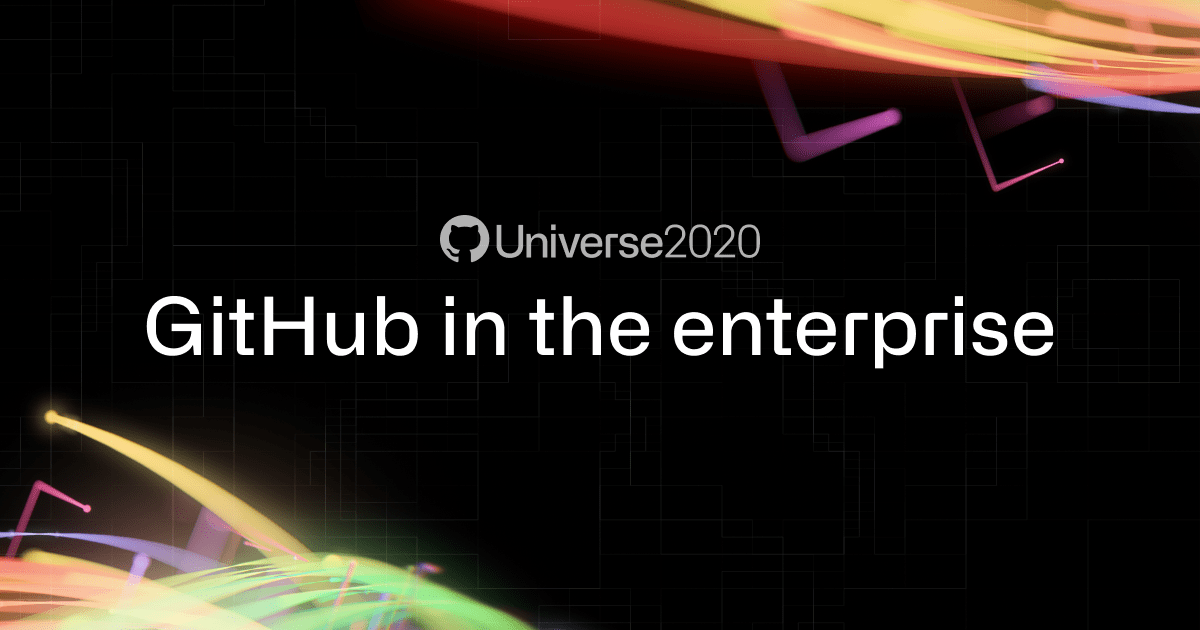GitHub in the enterprise
During the last year alone, over 56 million developers created more than 60 million new repos and made more than 1.9 billion contributions on GitHub. These developers are building the…

During the last year alone, over 56 million developers created more than 60 million new repos and made more than 1.9 billion contributions on GitHub. These developers are building the software we all depend on every day — technology that powers everything from our business systems to the cars we drive to our medical institutions. Building the world’s best experience for these developers is at the heart of everything we do at GitHub. It drives every feature we ship, every decision we make.
To deliver the best possible developer experience on GitHub, we are deeply invested in understanding the needs of our customers and the open source community. We engage with developers, teams, and companies of all sizes; we tap into our own experience using GitHub to build GitHub; and we conduct research such as the recently updated State of the Octoverse report. All of this helps us to hone in on what matters most. We’ve found that every developer and every company wants to improve their ability to deliver great software. To do that — to accelerate velocity and improve quality — the key is to focus on crafting an amazing developer experience.
In today’s featured session at GitHub Universe, I talked about the elements of a great developer experience. It boils down to three key components:
- Collaborative, automated developer workflows that make it easier for teams to work together and automate manual tasks so developers can stay in flow
- Developer-focused security and compliance that lets developers focus on writing code instead of mitigating risks
- Platform reliability, to ensure your platform is scalable, resilient, and available whenever your developers need to use it
In yesterday’s GitHub Universe keynote, we announced the latest products and features to help enterprises create world-class developer experiences inside their organizations, enabling them to accelerate the delivery of software for their customers, both internal and external. GitHub Enterprise Server 3.0 brings features developers love such as Actions, Packages, code scanning, and more to our on-premises product. Actions now has a brand new workflow visualizer, protected environments, and deployment approvals, making it a full-featured CI/CD platform. And developers can now ship even faster with auto-merge on Pull Requests. GitHub Enterprise is built on the same foundation as GitHub.com and these features bring our own best practices, developed over years of working with the world’s biggest developer community, to the enterprise. In addition, with GitHub Sponsors for companies, enterprises can now financially support the open source projects they rely on, and in turn bring additional innovation and durability to their software supply chain.
GitHub got its start in open source, and today we help all developers build better, more secure software. For enterprises, that means higher quality, less risk, and most importantly, better experiences for customers.
Check out our product announcements in yesterday’s keynote and drop in to our enterprise sessions today to learn more about how our customers are transforming the way they build with GitHub.
Written by
Related posts

How to streamline GitHub API calls in Azure Pipelines
Build a custom Azure DevOps extension that eliminates the complexity of JWT generation and token management, enabling powerful automation and enhanced security controls.

When to choose GitHub-Hosted runners or self-hosted runners with GitHub Actions
Comparing GitHub-hosted vs self-hosted runners for your CI/CD workflows? This deep dive explores important factors to consider when making this critical infrastructure decision for your development team.

Enhance build security and reach SLSA Level 3 with GitHub Artifact Attestations
Learn how GitHub Artifact Attestations can enhance your build security and help your organization achieve SLSA Level 3. This post breaks down the basics of SLSA, explains the importance of artifact attestations, and provides a step-by-step guide to securing your build process.